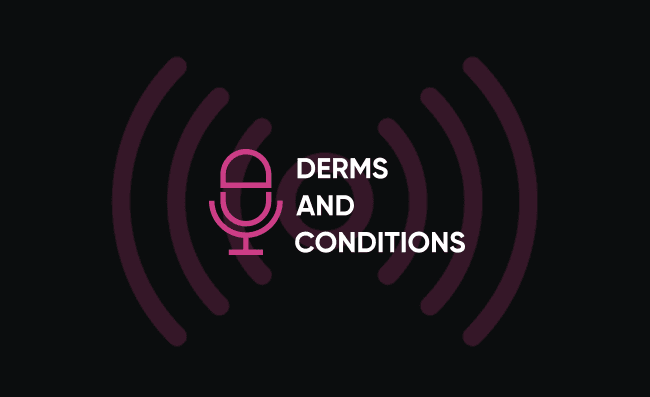Derms and Conditions Podcast Episode 85:
Improving Outcomes for Hidradenitis Suppurativa? Picking the Right Partners for the Ultimate Duet
Featuring Michael Cameron, MD and James Allred, MD | Release Date: August 01, 2024
In this episode of Derms and Conditions, host James Q. Del Rosso, DO, and guests Michael Cameron, MD, and James Allred, MD, discuss the intersection of GLP-1 agents and dermatology, exploring how these drugs, initially designed for managing type 2 diabetes, are now offering promising benefits for skin conditions associated with obesity.
They begin by providing an overview of glucagon-like peptide-1 (GLP-1) agents and their mechanisms of action. These drugs, which include terzepitide (marketed as Mounjaro and Zepbound) and semaglutide (available as Ozempic and Wegovy), are GLP-1 receptor agonists that enhance insulin secretion, reduce appetite, and promote weight loss.
Dr Allred then shares his personal experience, noting that patients on GLP-1 therapy, prescribed by their primary care physicians, showed remarkable improvements in their hidradenitis suppurativa (HS) symptoms. Observing these benefits, he began prescribing GLP-1 agents himself. Although randomized controlled trials directly linking GLP-1 agents to HS improvement are lacking, clinical observations align with the understanding that obesity-related systemic inflammation impacts dermatologic conditions like HS and psoriasis.
The conversation then shifts to discussing weight management with patients. They stress the importance of empathy and understanding, particularly for patients with HS who may find exercise counterproductive due to flare-ups. By explaining that reducing systemic inflammation through weight loss can significantly improve HS symptoms, they find patients more receptive to GLP-1 therapy.
Finally, they cover the practical aspects of integrating GLP-1 prescribing into dermatologic practice. Drs Allred and Cameron advise on patient assessment, including checking BMI and potential contraindications like a history of thyroid cancer. They highlight the importance of monitoring basic labs, such as glucose, hemoglobin A1c, and lipid profiles, to track the therapy’s impact and support insurance approvals.
Tune in to learn how dermatologists can leverage GLP-1 agents to improve patient outcomes by addressing the inflammatory underpinnings of conditions like HS and enhancing overall quality of life.
